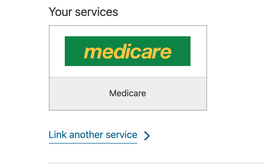Frequently Asked Questions:
Do I need a Referral?
It is not necessary to have a referral to see a psychologist. You are quite welcome to simply call and book an appointment. However, if you think you may be eligible for a rebate then you will require a referral from your GP.
Am I Eligible for a Rebate?
There are a number of schemes available to assist in funding counselling for eligible people
- Medicare Explained: Mental Health Care Plans
How many sessions am i eligible for under Medicare
With a referral and Mental Health Care Plan from your GP you are eligible for an initial 6 sessions of psychological therapy. At the end of this course of treatment you and your GP can review your progress and you may be approved for an additional 4 sessions. Please note: The maximum number of sessions per calendar year has now reduced from 20 (temporary covid arrangements), back down to 10. Some people are also eligible for group treatment in addition to their individual sessions.
How do i claim my Medicare rebate?
Once you have paid for the service and received your your receipt via email, self claiming through Medicare is relatively simple.
If you don't have a MyGov account go to the MyGov website and click on "Create a MyGov account" and you will be taken through the necessary steps.
If you don't have a MyGov account go to the MyGov website and click on "Create a MyGov account" and you will be taken through the necessary steps.
|
Step 1: If you already have a MyGov account then log in at MyGov and make sure that Medicare is a linked service.
|
Step 2: Open the Medicare link
Step 3: Use the quick link on the home screen to start a new claim. You will be asked a series of questions about information that you can find on your receipt.

Step 4: You will then be asked to upload a copy of the receipt, which you should have in PDF form in you email.

Alternatively, you can download the Medicare App to your phone and using your MyGov password to log in, you can quickly process the claim through the app.
If you have any difficulty let me know, or get in touch with Medicare.
What about my Private Health Insurance?
If you have private health insurance with extras cover you may be eligible for a refund of a portion of your session fee. Each health fund operates differently and it's best to check with yours directly.
Other Third Party Insurers
People may also be referred for counselling via a number of other sources for funded sessions. These include the Transport Accident Commission (TAC), the Victorian Workcover Authority (VWA), the Department of Veterans Affairs (DVA) and Victims of Crime Assistance Tribunal (VOCAT). These referrals are also facilitated by a GP and pre-approval for funding is granted by the relevant organisation. Usually these invoices are sent directly to the payee, and there is no gap payment for you. Please note, i accept referrals for DVA but no longer for VWA or TAC.
Privacy
Psychologists will provide you with information on privacy and confidentiality relevant to the organisation in which they work. The following is an example from my practice:
Information you share with me will be kept strictly confidential and will not be disclosed without your written permission. I generally like to liaise with your treating doctor so that we can work together to support you, and I’ll ask you to sign an agreement to allow me to do this. By law there are some situations where it may be necessary for me to disclose personal information about you; namely, if I believe that you are a risk to yourself or to someone else, or in situations where children are put at risk (such as by abuse or neglect), or in response to a court subpoena. If you have questions or concerns about your privacy please ask.
Information you share with me will be kept strictly confidential and will not be disclosed without your written permission. I generally like to liaise with your treating doctor so that we can work together to support you, and I’ll ask you to sign an agreement to allow me to do this. By law there are some situations where it may be necessary for me to disclose personal information about you; namely, if I believe that you are a risk to yourself or to someone else, or in situations where children are put at risk (such as by abuse or neglect), or in response to a court subpoena. If you have questions or concerns about your privacy please ask.
What's the Difference between a Psychologist and a Psychiatrist?
Psychologists study the mind, human behaviour and mental illness. They train in providing a range of services to assess, diagnose, treat or prevent problems. These include: counselling (in a variety of therapeutic modalities), psychoeducation, consulting, coaching and hypnotherapy, and are provided in a range of settings. Psychologists cannot prescribe medication. Psychiatrists are medical doctors who complete further specialised study in the diagnosis, treatment and prevention of mental illness. They can prescribe medications such as anti-depressants, or mood stabilisers, and some also provide non-medication therapies.
Dr Melissa Glenwright, Clinical Psychologist, Suite 39, level 2, 5 Everage Street Moonee ponds VIC 3039




